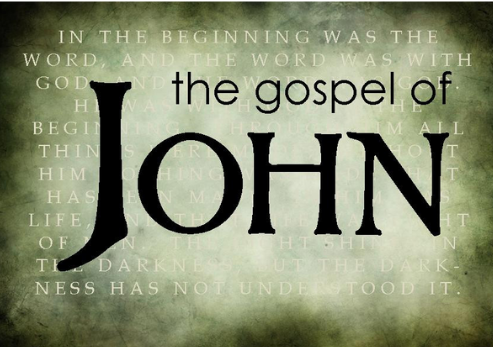| 14 Now about the middle of the feast Jesus went up into the temple and taught. 15 And the Jews marveled, saying, "How does this Man know letters, having never studied?" 16 Jesus answered them and said, "My doctrine is not Mine, but His who sent Me. 17 If anyone wants to do His will, he shall know concerning the doctrine, whether it is from God or whether I speak on My own authority. 18 He who speaks from himself seeks his own glory; but He who seeks the glory of the One who sent Him is true, and no unrighteousness is in Him. 19 Did not Moses give you the law, yet none of you keeps the law? Why do you seek to kill Me?" 20 The people answered and said, "You have a demon. Who is seeking to kill You?" 21 Jesus answered and said to them, "I did one work, and you all marvel. 22 Moses therefore gave you circumcision (not that it is from Moses, but from the fathers), and you circumcise a man on the Sabbath. 23 If a man receives circumcision on the Sabbath, so that the law of Moses should not be broken, are you angry with Me because I made a man completely well on the Sabbath? 24 Do not judge according to appearance, but judge with righteous judgment." 25 Now some of them from Jerusalem said, "Is this not He whom they seek to kill? 26 But look! He speaks boldly, and they say nothing to Him. Do the rulers know indeed that this is truly the Christ? 27 However, we know where this Man is from; but when the Christ comes, no one knows where He is from." 28 Then Jesus cried out, as He taught in the temple, saying, "You both know Me, and you know where I am from; and I have not come of Myself, but He who sent Me is true, whom you do not know. 29 But I know Him, for I am from Him, and He sent Me." 30 Therefore they sought to take Him; but no one laid a hand on Him, because His hour had not yet come. Questions to Consider:
| Jesus left the feast and began to teach at the Temple. This is like a man willingly walking into a lion's den. This was the seat of power that was arrayed against Jesus. It is hard to imagine how convoluted the circumstances that surrounded Jesus had become. The core of the organization that should have been in the center of supporting the Messiah was the very devise used to eventually cause Christ's death. As Jesus began to teach the Jews were astonished by His intellect and knowledge. v.15 "How does this Man know letters, having never studied?" Jesus answers their question by making a brilliant defense of his actions. Note: The Jews decided to oppose Jesus because He performed a healing on the Sabbath. (John 5:1-13) Jesus' defense answers the question of why Jesus would heal on the Sabbath. Follow the logic: 1) Jesus came from the Father to teach the doctrine and to do the works of the Father. 2) Moses performed circumcision (a work) on the Sabbath under the direction of the Father. 3) Jesus who was sent by the Father healed a man (a work) on the Sabbath under the direction of the Father. Did Jesus violate the sanctity of the Sabbath? Not if He was from the Father doing the bidding of the Father. If Jesus was who He claimed to be the Jews did not have a valid case against Him. Jesus voiced the obvious question: "Why do you seek to kill Me?" v.19. He followed that question by giving them some very sound advice. v.24. "Do not judge according to appearance, but judge with righteous judgment." Jesus is calling them to lay their misguided passion aside and examine His defense with intellectual integrity. Intellectual integrity is difficult to achieve when a group is already convinced and has an established agenda that they are trying to achieve. What is logic, truth and integrity when it stands in the way of the ends? This is an obvious flaw that did not allow the Jews to arrive at a "righteous judgment." The Jews claimed that no one would know where the Messiah would come from, so Jesus could not be the Messiah because everyone knew that He came from Nazareth. The Jews should have considered the fact that they only thought they knew where Jesus came from. The origins of Jesus actually start in heaven, born in Bethlehem, lived in Egypt, and was finally raised in Nazareth. They never clearly understood that Jesus was indeed sent from the Father as the only begotten Son. |
|
0 Comments
|
RJ DugoneLead Teaching Elder: Archives
July 2020
Categories
All
|


 RSS Feed
RSS Feed
